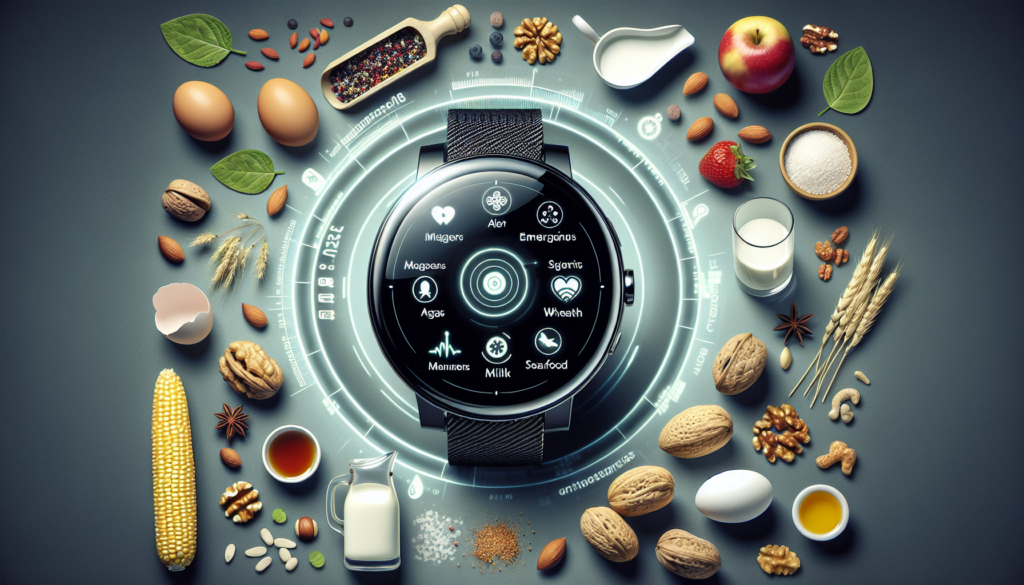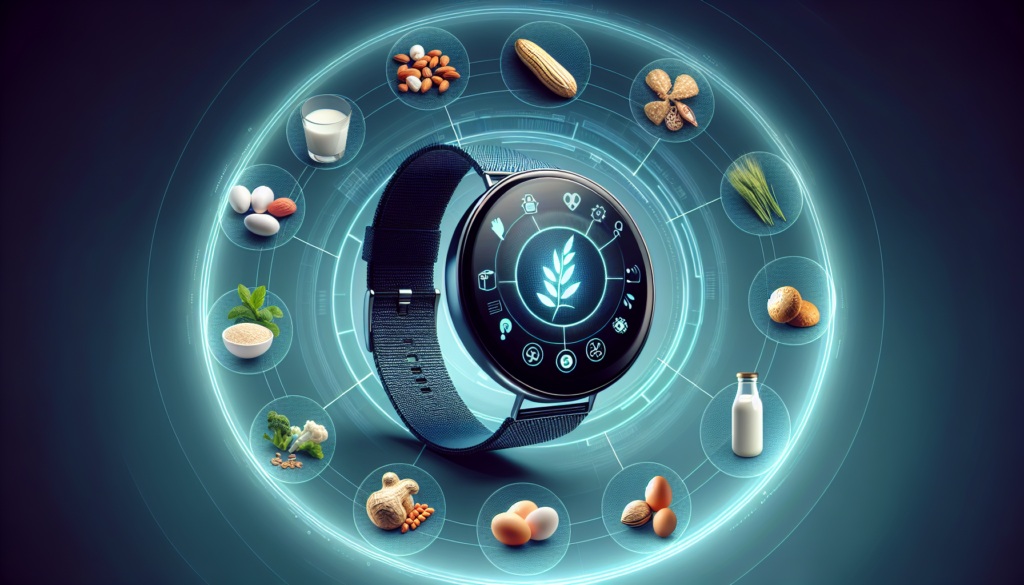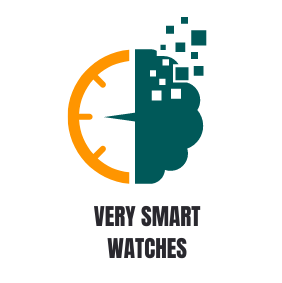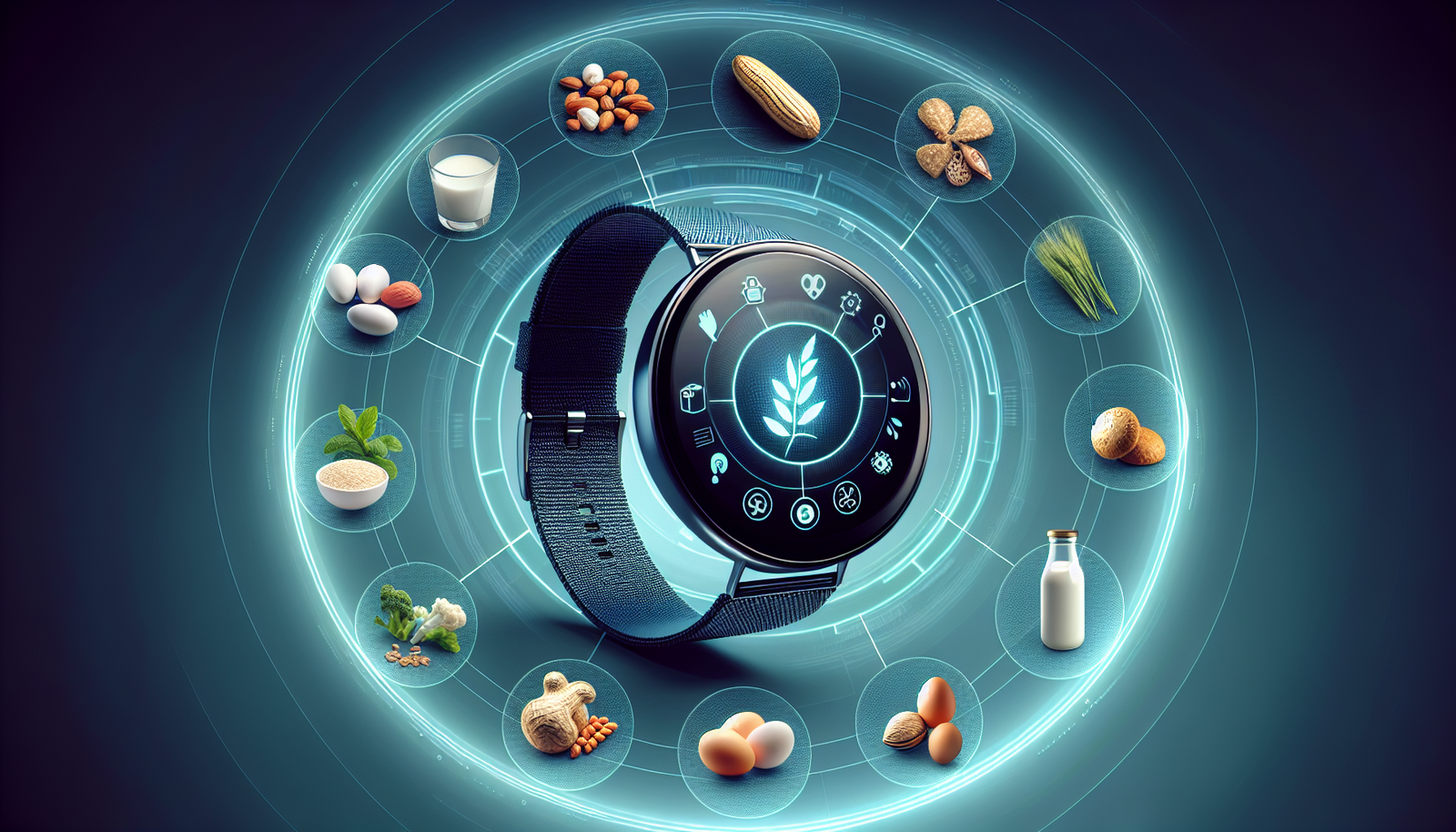Imagine a world where managing food allergies becomes effortless and accessible to all. The emergence of smartwatches has revolutionized the way we engage with our health, and now, we have a smartwatch specifically designed for food allergy management. This innovative device promises to bridge the gap between awareness and action, providing real-time alerts, personalized recommendations, and invaluable peace of mind. Say goodbye to constant anxiety and hello to a new level of confidence and control. Get ready to embark on a journey towards a safer and more fulfilling life, as this smartwatch empowers you to navigate the intricate landscape of food allergies with ease.

1. The Problem of Food Allergies
1.1 What are food allergies?
Food allergies are adverse reactions to certain foods triggered by the immune system. When someone with a food allergy consumes a specific food, their immune system mistakenly identifies it as harmful and releases chemicals that cause allergic symptoms. These symptoms can range from mild reactions like hives and digestive discomfort to severe and life-threatening reactions known as anaphylaxis.
1.2 Prevalence of food allergies
Food allergies affect a significant portion of the population. According to studies, approximately 6-8% of children and around 4% of adults have been diagnosed with food allergies. The prevalence of food allergies has been increasing in recent years, posing a growing concern for individuals and families managing these allergies.
1.3 Challenges faced by individuals with food allergies
Individuals with food allergies face numerous challenges in their daily lives. They constantly need to be vigilant about the foods they consume, carefully reading ingredient labels and avoiding cross-contamination. Eating out at restaurants or attending social events can be especially difficult as they need to navigate potential exposure to allergens. These challenges can cause anxiety and limit their ability to fully enjoy meals and social situations.
2. Introduction to Smartwatches
2.1 What are smartwatches?
Smartwatches are wearable devices designed to be worn on the wrist, offering functionality beyond just telling time. They connect to smartphones, enabling users to receive notifications, track their fitness, monitor their health, and perform various tasks without needing to take out their phones. Smartwatches feature touchscreen displays, sensors, and wireless connectivity, making them versatile and convenient accessories.
2.2 Features and capabilities of smartwatches
Smartwatches come equipped with a range of features and capabilities that make them valuable tools for managing everyday tasks and activities. They can track heart rate, count steps, monitor sleep quality, measure distance traveled, and even provide guided workouts. Some smartwatches also have built-in GPS, allowing users to accurately track their outdoor activities. Additionally, they offer customizable watch faces, interchangeable bands, and compatibility with various apps, expanding their functionality based on individual preferences and needs.
2.3 Importance of smartwatches in healthcare
Smartwatches have emerged as a significant player in the healthcare industry. They offer opportunities for remote patient monitoring, medication reminders, and health data collection, allowing for a more proactive and personalized approach to healthcare. By providing continuous monitoring and real-time data, smartwatches can help individuals take control of their health and make informed decisions.
3. Smartwatch Technology for Food Allergy Management
3.1 Real-time allergen detection
One of the most significant advancements in smartwatch technology for food allergy management is real-time allergen detection. Some smartwatches are equipped with sensors capable of detecting common allergens such as peanuts, dairy, soy, and gluten. When the smartwatch comes in contact with a potential allergen, it can send an alert to the user, notifying them of the presence of the allergen and allowing them to take immediate action.
3.2 Customizable allergy tracking
Smartwatches also offer customizable allergy tracking features. Users can input their specific food allergies into the watch’s accompanying app, creating a personalized profile. The smartwatch can then use this information to track their exposure to allergens throughout the day. This data can be crucial in identifying patterns, triggers, and potential sources of allergen contamination.
3.3 Alert notifications for allergen exposure
Another useful feature of smartwatches for food allergy management is the ability to receive alert notifications for allergen exposure. When a user enters a location known for its allergen-free menu options, their smartwatch can send a notification to provide reassurance. Conversely, if the smartwatch detects potential allergens in a particular food or environment, it can alert the user to exercise caution and potentially avoid consuming or entering that area.
4. Benefits of Using Smartwatches for Food Allergy Management
4.1 Enhanced safety and peace of mind
Smartwatches offer enhanced safety and peace of mind for individuals with food allergies. Real-time allergen detection and alert notifications help users avoid accidental exposure to allergens, reducing the risk of severe allergic reactions. This added layer of protection allows individuals to feel more confident when dining out and engaging in social activities, enhancing their overall safety and quality of life.
4.2 Improved management and control of food allergies
With customizable allergy tracking, individuals can gain valuable insights into their food allergies and better manage them. By tracking their exposure to allergens, individuals can identify specific triggers and patterns, enabling them to make more informed decisions about their food choices. This increased control over their allergies can lead to better management and a reduced risk of allergic reactions.
4.3 Better quality of life for individuals with food allergies
The combination of real-time allergen detection, customizable allergy tracking, and alert notifications ultimately results in a better quality of life for individuals with food allergies. They can enjoy their meals and daily activities with reduced anxiety and a sense of empowerment. Smartwatches provide a level of convenience, support, and independence that can significantly improve the overall well-being of individuals living with food allergies.

5. Available Smartwatches for Food Allergy Management
5.1 Brand 1’s smartwatch and its features
Brand 1 offers a smartwatch specifically designed for food allergy management. This smartwatch includes real-time allergen detection capabilities, customizable allergy tracking, and alert notifications. It features a sleek design, a vibrant display, and a user-friendly interface. Additionally, it is compatible with a range of allergy tracking apps and offers long battery life for extended use.
5.2 Brand 2’s smartwatch and its features
Brand 2 also offers a smartwatch tailored to food allergy management. This smartwatch boasts advanced allergen detection sensors, customizable allergy profiles, and real-time alert notifications. It is designed to be durable, water-resistant, and capable of withstanding everyday wear and tear. Furthermore, it integrates seamlessly with various smartphone apps, allowing users to sync their data and access comprehensive allergy management tools.
5.3 Comparison of available options
When choosing a smartwatch for food allergy management, it is essential to consider factors such as allergen detection accuracy, compatibility with allergy tracking apps, battery life, durability, and overall usability. Comparing the features and specifications of different smartwatches can help individuals make an informed decision based on their specific needs and preferences.
6. Considerations when Choosing a Smartwatch for Food Allergy Management
6.1 Compatibility with allergy tracking apps
Check whether the smartwatch is compatible with popular allergy tracking apps. This compatibility allows for seamless data synchronization, enabling users to access a comprehensive overview of their allergy management. Users should also consider the availability of app updates and the reputation of the app developer in terms of reliability and user support.
6.2 Battery life and durability
Review the battery life and durability of the smartwatch. A longer battery life ensures that the device can be used throughout the day without requiring frequent charging. Additionally, individuals with food allergies may engage in various activities where the smartwatch might be exposed to potential damage, so opting for a durable device is crucial for long-term use.
6.3 Affordability and availability
Consider the affordability and availability of the smartwatch. Evaluate whether the price aligns with the features and functionalities provided by the device. It is also essential to check whether the smartwatch is readily available in the market or if there are any additional costs associated with its purchase, such as shipping fees or import taxes.
7. Integrating Smartwatches with Other Food Allergy Management Tools
7.1 Smartphone apps for allergy tracking and management
Smartwatches can be integrated with smartphone apps specifically designed for allergy tracking and management. These apps provide additional features, such as detailed allergen information, personalized recommendations, and access to allergy-friendly recipes. By integrating the smartwatch with these apps, users can have a comprehensive and unified approach to their food allergy management.
7.2 Allergy-friendly restaurant databases
Some smartwatches can also connect to allergy-friendly restaurant databases, allowing users to easily find safe dining options in their vicinity. These databases provide information on restaurants that cater to individuals with food allergies, including detailed allergen menus and cross-contamination prevention measures. By integrating this feature into their smartwatch, users can confidently explore new dining experiences while minimizing the risk of allergen exposure.
7.3 Emergency medical alert systems
Integrating smartwatches with emergency medical alert systems is another valuable way to enhance food allergy management. In case of an allergic reaction, the smartwatch can automatically send an alert to emergency contacts, providing them with the user’s location and relevant medical information. This feature can be life-saving in situations where immediate medical assistance is required.
8. Case Studies and Success Stories
8.1 Personal experiences with smartwatch usage for food allergies
Many individuals with food allergies have shared their positive experiences using smartwatches for allergy management. They have reported feeling more secure and in control of their allergies, allowing them to participate fully in various social activities and enjoy a wider range of food options. These personal stories highlight the transformative impact smartwatches can have on the daily lives of those with food allergies.
8.2 Positive impact on daily life and well-being
Smartwatches have had a positive impact on the daily life and well-being of individuals with food allergies. Users have shared that the peace of mind offered by real-time allergen detection and alert notifications has reduced their anxiety, enabling them to navigate social situations with confidence. By proactively managing their allergies, these individuals have experienced an improved overall quality of life and a greater sense of normalcy.
9. Future Possibilities and Advancements
9.1 Improvements in allergen detection technology
The future of smartwatches for food allergy management holds exciting possibilities, with advancements in allergen detection technology on the horizon. Researchers are exploring more accurate and sensitive sensors that can detect a wider range of allergens, including trace amounts. These advancements could further enhance the safety and reliability of smartwatches in managing food allergies.
9.2 Integration with smart kitchen appliances
Smartwatches could potentially be integrated with smart kitchen appliances, creating a seamless and connected ecosystem for food allergy management. For example, a smartwatch could communicate with a smart refrigerator to alert the user if any allergen-containing products are stored inside. This integration could enhance allergen avoidance and streamline food preparation processes.
9.3 Potential for predictive analysis
The development of predictive analysis algorithms could revolutionize how smartwatches manage food allergies. By analyzing patterns and data from a user’s allergen exposure, a smartwatch could potentially predict and notify the user of potential allergen sources in their environment. This proactive approach could further reduce the risk of accidental allergen exposure and provide individuals with timely information to make informed decisions.
10. Conclusion
10.1 Recap of the benefits of smartwatches for food allergy management
Smartwatches offer an innovative and practical solution for managing food allergies. With features like real-time allergen detection, customizable allergy tracking, and alert notifications, they provide enhanced safety, improved management, and a better quality of life for individuals with food allergies. Smartwatches empower users by offering convenience, peace of mind, and independence in navigating everyday activities and social situations.
10.2 Encouragement for individuals with food allergies to explore smartwatch options
In conclusion, individuals with food allergies are encouraged to explore the available smartwatch options for managing their allergies. By embracing the potential of smartwatch technology, they can proactively take control of their allergies, reduce the risk of severe reactions, and enjoy a more fulfilling and worry-free daily life. With continuous advancements and future possibilities, smartwatches have the potential to revolutionize the way food allergies are managed and provide an invaluable tool for individuals and families dealing with this health challenge.

